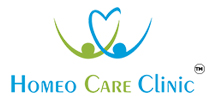Does Ketoconazole Cause Hair Loss?
Introduction
Ketoconazole is an antifungal medication that can be seen in shampoos, tablets, and creams. It is used most frequently to treat fungal infection of the scalp, seborrheic dermatitis, and dandruff. But one question that is mostly raised by the patients is: does ketoconazole shampoo cause hair loss?
This article will address the interaction of ketoconazole with hair loss, possible side effects, advantages, and alternatives so you can make a well-informed decision on whether or not to use it.
What is Ketoconazole Shampoo?
Ketoconazole shampoo is an antifungal medicated shampoo in the form of strengths of 1% over-the-counter and 2% prescription.
Uses are:
- Treatment of dandruff and flaky scalp
- Decreasing fungal infections like tinea capitis
- Treatment of seborrheic dermatitis
Used off-label occasionally for androgenetic alopecia (male/female pattern baldness) due to its anti-androgenic activity
Does Ketoconazole Shampoo Cause Hair Loss?
The question, “does ketoconazole shampoo cause hair loss,” is a legitimate one, but here’s the scoop:
-
Temporary Shedding
- Temporary, light shedding of hair may occur in some individuals when they use ketoconazole shampoo.
- This is most often temporary and occurs because the shampoo is anti-inflammatory and drives out existing weak hair to make room for new hair growth.
-
Underlying Conditions
- If an individual has seborrheic dermatitis, dandruff, or fungal infection, a failure to treat inflammation can result in thinning of hair itself.
- In such a case, ketoconazole promotes the health of the scalp and reduces further hair loss.
-
Rare Side Effect:
- At times, in rare cases, individuals experience dryness, irritation, or allergic reactions to ketoconazole.
- These reactions can result in breakage or excessive shedding of hair.
Ketoconazole and Hair Loss: Can It Help Instead?
Surprisingly, studies indicate ketoconazole and hair loss treatment may coexist:
- Anti-androgenic activity: Ketoconazole can inhibit DHT (dihydrotestosterone), a hormone involved with male and female pattern baldness.
- Anti-inflammatory action: It inhibits inflammation of the scalp, making the hair growth environment better.
- Combined therapy: Usually combined with minoxidil or PRP treatment in order to get maximum effects for hair regrowth.
So, rather than leading to baldness, ketoconazole can help in retaining hair and inducing new hair growth in some conditions.
Common Side Effects of Ketoconazole Shampoo
- Dry scalp or itchiness
- Mild redness or irritation
- Temporary thinning hair fall
- Mild allergic reaction which is rare
How to Use Ketoconazole Shampoo Safely
- Apply only 2–3 times a week unless otherwise advised by a physician.
- Leave the shampoo on the scalp for 3–5 minutes before washing it out.
- Do not use it daily so as not to dry the scalp.
- Use alongside a mild conditioner so as not to irritate.
- Get a doctor’s advice if there is excess hair loss or scalp reaction.
Alternatives to Ketoconazole Shampoo in Hair Loss
If you are concerned about ketoconazole and hair loss, alternatives to consider are:
- Zinc Pyrithione shampoos (anti-dandruff)
- Salicylic acid shampoos (for exfoliation)
- Coal tar shampoos (for long-term dandruff/psoriasis)
- Homeopathy for dandruff-induced hair loss (Thuja, Graphites, Kali Sulphuricum)
- Ayurvedic remedies such as neem oil, aloe vera, and tea tree oil
FAQs
- Does ketoconazole shampoo cause hair loss?
Yes, only in a rare instance, but otherwise, temporary shedding only. It improves scalp health and minimizes hair loss for the majority of consumers.
- Can ketoconazole help in treating baldness?
Yes, research indicates ketoconazole and hair loss are directly connected because of its capacity to lower DHT activity and inflammation.
- How long should I use ketoconazole shampoo?
It’s typically prescribed for 2–4 weeks for dandruff and occasionally long-term (weekly use) for follow-up.
- Is hair shedding normal after starting ketoconazole shampoo?
Yes, some loss will happen because of shedding weak hairs, but temporary.
- Should I stop using ketoconazole if I notice hair loss?
If you have undue hair loss or redness, call your dermatologist. With most people, continued use will offset shedding.
So does ketoconazole shampoo cause hair loss? – The answer is that although there is very little shedding, it is usually a harmless and short-lived side effect. Indeed, the connection between ketoconazole and hair loss is more positive than negative in the sense that the shampoo makes the scalp healthier and actually helps promote hair regrowth in dandruff and pattern baldness.
For maximum effectiveness, use ketoconazole shampoo under the guidance of a doctor, along with a well-balanced hair care regimen, and also try adjunct treatments such as homeopathy or PRP when needed.
In conclusion, Hair PRP Treatment Pune, led by Dr. Vaseem Choudhary and his experienced team at Homeo Care Clinic, is dedicated to providing advanced and effective PRP therapies for both hair and skin rejuvenation. Our goal is to help you feel confident and look your best with treatments designed to address hair thinning and skin concerns naturally. We believe in offering personalized care and creating customized plans to meet each individual’s unique needs, ensuring the best possible results.
To schedule an appointment or learn more about our treatments, please visit our website or call us at +91 9595211594. Our friendly team is here to support you throughout your journey to healthier hair and radiant skin. If you’re looking for the best PRP treatment clinic, we are here to assist.
Follow us on Facebook and Instagram for expert tips and insights into PRP treatments and holistic care.
Have questions about hair loss, skin concerns, or PRP therapy? Click to send us a WhatsApp message, and our experts will be happy to assist you or you can book an appointment by clicking here.
You can also connect with us through E-Mail: drvaseemchoudhary@gmail.com and our Doctor will get back to you within 1-2 working days







